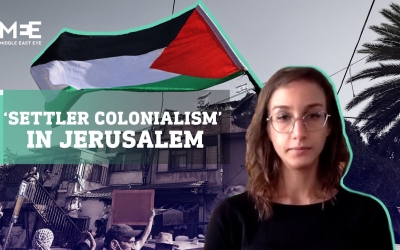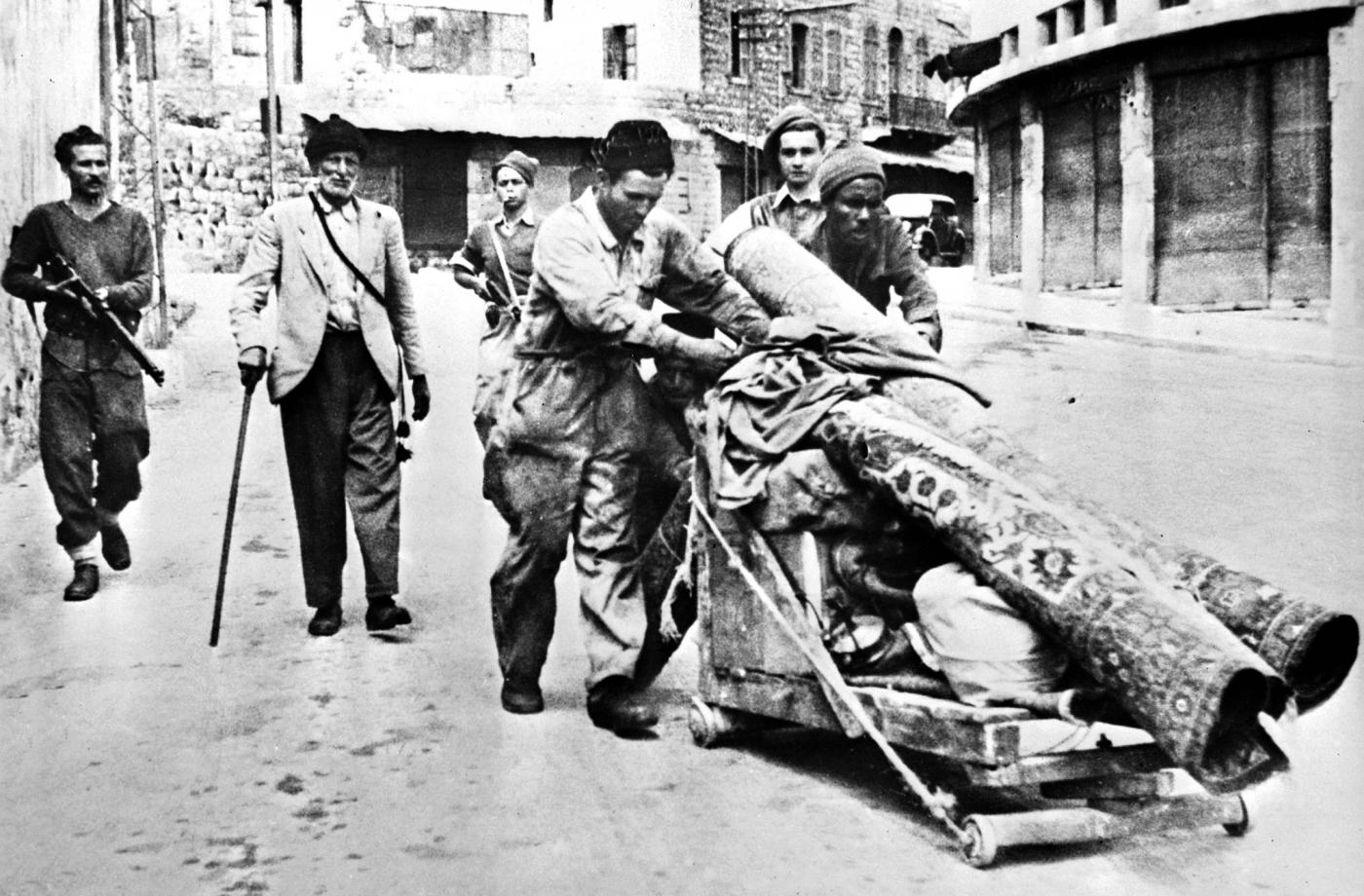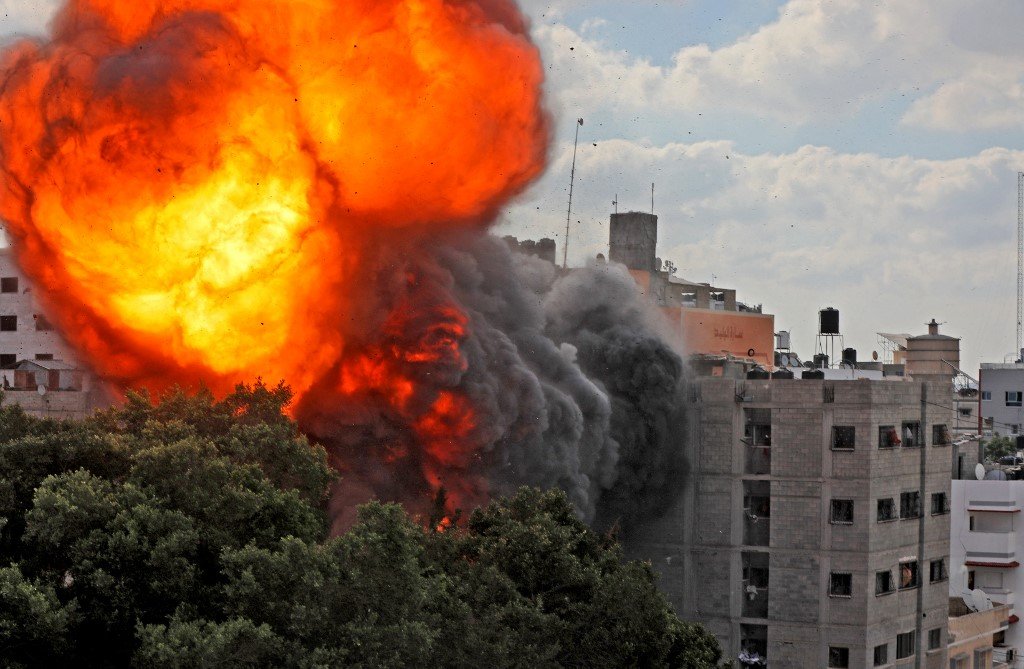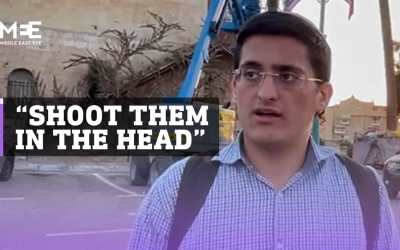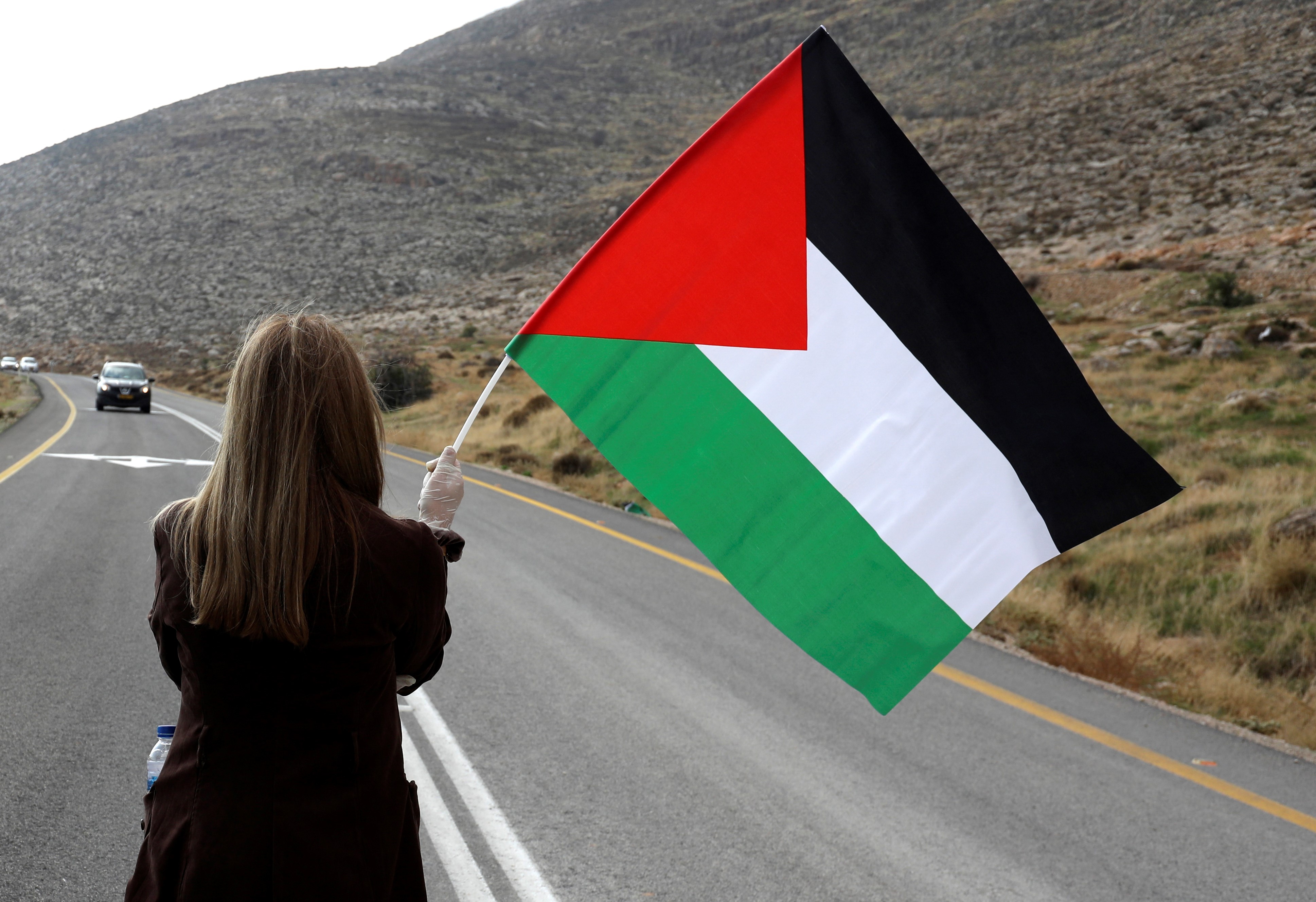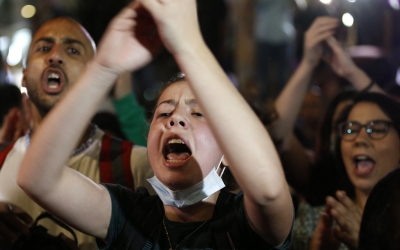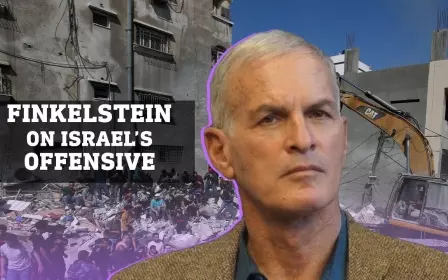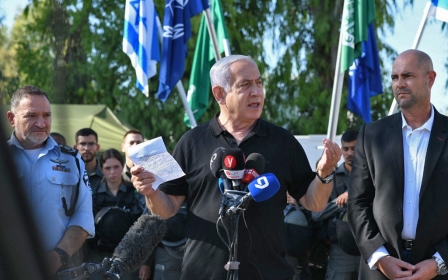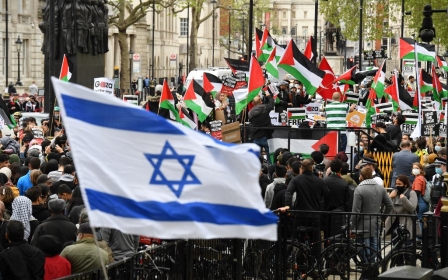Why the West supports Israel’s 'right to defend' its apartheid regime
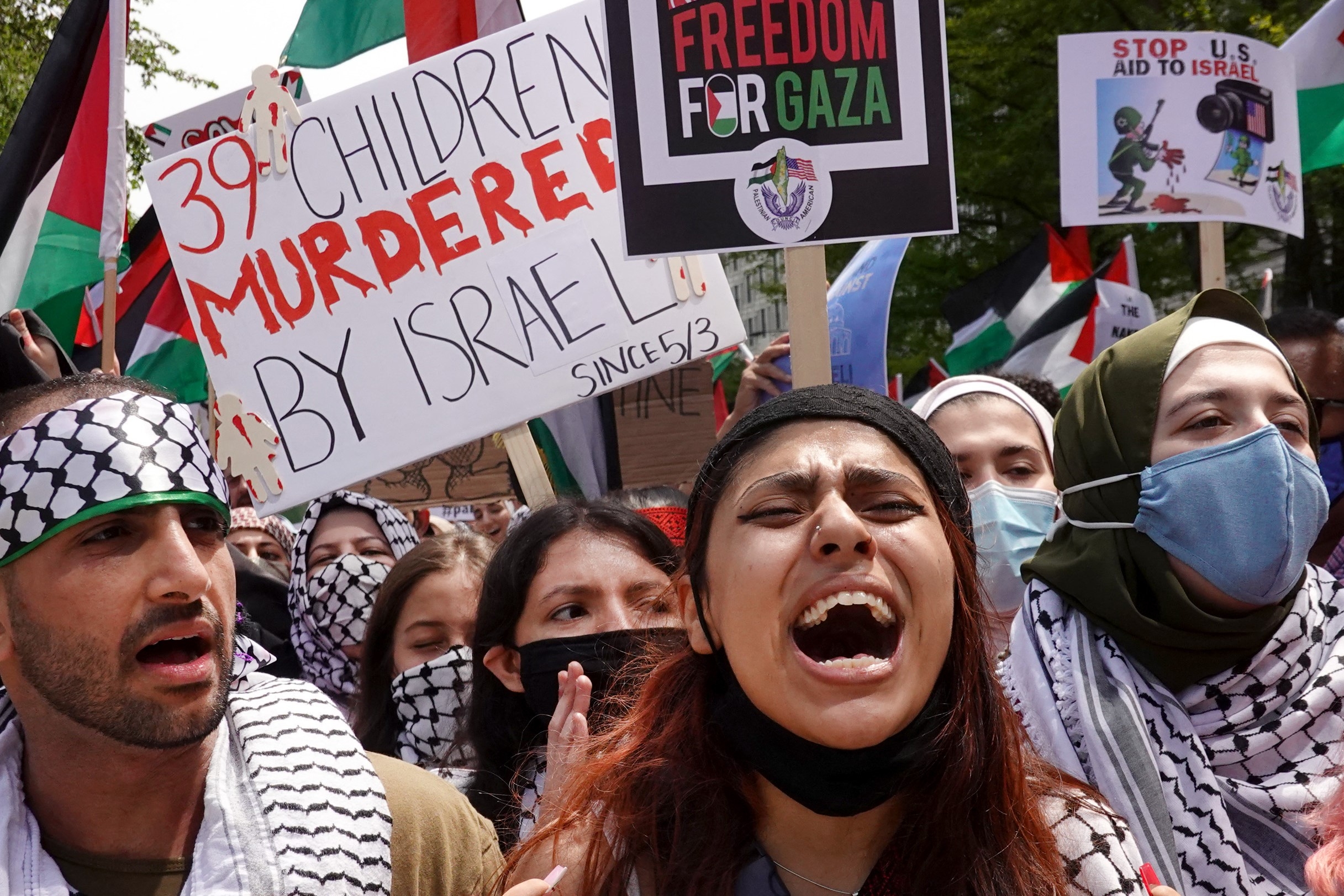
Israel’s war against all the Palestinians living under its apartheid Jewish supremacist regime escalated in the last week in response to the revolt of the Palestinian people across colonised historic Palestine.
Palestinians are rarely identified in the western white liberal lexicon as the indigenous people of Palestine undergoing ethnic cleansing
Some 140 years after the arrival of European Jewish colonists on the shores of Palestine with the intention to dispossess the indigenous Palestinians of their lands and livelihoods, and after 73 years of the establishment of the settler-colony which stole the country of the Palestinians and expelled the majority of its people, Palestinian resistance has never abated.
Unrepentant, the United States and the colonising countries of the European Union and the United Kingdom have not tired of their commitment to defending "Israel’s right to defend itself". What these governments mean by this white-supremacist refrain is "Israel’s right to defend" its regime of apartheid and Jewish supremacy against indigenous anti-colonial resistance.
They have been joined by mainstream media as well as social media outlets that suppress and ban pro-Palestinian views, as their particular contribution in defence of Israel’s right to defend its apartheid regime.
Liberal 'neutrality'
New MEE newsletter: Jerusalem Dispatch
Sign up to get the latest insights and analysis on Israel-Palestine, alongside Turkey Unpacked and other MEE newsletters
A whole lexicon of white liberal ideological vocabulary was marshalled over the decades to the task of defending the Zionist regime in its ongoing colonial war against the Palestinian people. White liberal (and conservative) apologists for Israel insist that what exists in Palestine is not a colonial war of conquest and a native anti-colonial liberation struggle, but rather a "conflict", a term which began to be used since the early 1920s at least by the Zionists and later by the British, and appears in earlier Zionist documents, presented as a neutral descriptor.
Subsidiary "neutral" liberal terms define this colonial war and the resistance to it as “clashes" and a "cycle of violence".
Palestinians are rarely identified in the western white liberal lexicon as the indigenous people of Palestine undergoing ethnic cleansing, and Israeli Jews are never exposed as Jewish colonists committing ethnic cleansing.
Palestinian resistance is labelled "neutrally" as "violence" and more importantly as “terrorism", while Israel’s colonial bombings are referred to as "retaliation", justified by "Israel’s right to defend itself". The liberal ideological term "retaliation" is another key word presented as "neutral" at the same moment that it insists that the Palestinians are the ones who commit "violence" first.
This is intended to erase the Zionist colonial war against the Palestinians since the 1880s as not the first cause of their calamity and their Nakba. This “neutral” term seeks to naturalise the colonial-settler conquest of Palestine as a "peaceful" process to which the barbaric non-white Palestinians responded with violence, against which civilised European Israel now "retaliates".
The white-dominated liberal western media strategy often insists on representing the Palestinian struggle as religious infighting between "Jews" and "Muslims", depicted as two native communities at odds with one another since time immemorial.
Some of the white liberals, who recognise that their commitment to settler-colonialism in Palestine and to Israeli apartheid and Jewish supremacy has created conflicts of conscience for them, have in recent years joined the armies of western liberal human rights defenders to deny the national indigenous rights of the Palestinians, in favour of their "human" rights, demanding that Israel not violate the latter.
This rhetoric depoliticises the Palestinian struggle and deliberately erases yet again the settler-colonial nature of the Israeli oppression to which Palestinians are subjected.
In the same manner, the ethnic cleansing of the Palestinians is rechristened in the liberal lexicon as "evictions" of Palestinians from their homes, which legitimises Jared Kushner’s and Israel’s official depiction of settler-colonial Jewish supremacy in the country as a mere "real-estate dispute".
The age of uprisings
It was in 1884 that the Palestinian peasants first resisted the European Jewish colonists who began to found a colonial regime of apartheid and Jewish supremacy in Palestine. After landing in the country of the Palestinians in 1882-1883, the Russian Jewish colonists, initially financed by Baron Edmond de Rothschild, began to ethnically cleanse the native Palestinians from the land they had tilled for centuries in order to establish European Jewish colonies.
The Palestinians resisted the new colonial settlements built on their lands - Petah Tikva, Gedera, Rehovot, Nes Ziyyona, and Hadera. Historian Neville Mandel in his book, titled The Arabs and Zionism before WWI, averred that "there was scarcely a Jewish colony which did not come into conflict at some time with" the native Palestinian peasants. According to Mandel, between 1904 and 1909 more Palestinian peasant uprisings against the Jewish colonists erupted, and several Palestinians and colonists were killed, which led to the imprisonment of the peasants by the Ottoman authorities.
Another uprising ensued in the village of al-Fula in 1910, where the colonists killed one Palestinian, and the Ottomans arrested scores more. Uprisings would resume after World War I when the British conquered Palestine.
In 1920, during the Nabi Musa festival which coincided with Orthodox Easter for Palestinian Christians and Passover for Jews, colonial Zionist militias, numbering in the hundreds, marched in the streets of Jerusalem to intimidate the native Palestinians whose country they coveted. This led to an uprising by the Palestinians in the city. Five Jews and four Palestinians, including a young Palestinian girl, were killed.
By 1925, the uprising of the peasants of ‘Affulah protesting the Jewish colonial takeover and ethnic cleansing of the inhabitants demonstrated that the ongoing Zionist colonial project continued to face stiff resistance. By 1929, the Palestinian uprising against the British and the colonising Jews broke out in Jerusalem and soon engulfed much of Palestine, killing hundreds on both sides.
By 1933, more uprisings followed, culminating in the formation of bands of peasant guerillas led by Izz al-Din al-Qassam in 1935 and in the Great Palestinian Revolt that lasted from 1936 to 1939 and cost 5000 Palestinian lives.
None of this resistance was able to stop the onward march of Jewish colonisation, supported as it was by British colonial power and the League of Nations, from preparing for the final battles for the ethnic cleansing of 1947-48.
The Zionist gangs conquered Palestine and established a Jewish settler-colony, and immediately undertook the legal and institutional establishment of a Jewish supremacist apartheid regime, accompanied by dozens of massacres of the Palestinians.
Massacre the natives
European Jewish colonists borrowed much of their colonial and racial strategy from other white European colonists. This includes the important mantra that colonists had no choice but to massacre native Africans.
The history of the last 73 years of Palestinian resistance is suppressed not only by the Zionist colonists but also by all their imperialist sponsors in Europe and North America
Defending the white supremacist South African colonial massacres of the indigenous Nama people of Namibia, the Portuguese colonial representative at the League of Nations, Freire D’Andrade, whose country had several adjacent settler-colonies to Namibia and South Africa, volunteered in 1923 that “there existed in South Africa an anti-European movement which was of considerable importance; the remark had often been heard that Africa was for the Africans and the Europeans should be thrown in the sea."
Borrowing this white settler-colonial phrase, the head of the Zionist Organization, Chaim Weizmann, would claim in 1930 that the League of Nations should not grant democratic self-representation to the indigenous Palestinians, borrowing D’Andrade’s colonial-settler claim about what indigenous peoples’ demand for democracy and independence entails for the European colonists. What the Arab leaders "desire at present," Weizmann insisted, "is plainly to drive us into the Mediterranean." How they would achieve this, Weizmann explained, was through their "wish" to establish "a Parliament on a democratic basis, namely an institution in which we would be a small minority."
Not only did the Jewish colonists deprive Palestinians since 1948 of their democratic rights, in fact it was they, according to Ilan Pappe's Ethnic Cleansing of Palestine, who pushed the Palestinians in 1948 into the Mediterranean and into the desert as they proceeded with their ethnic cleansing of their settler-colony.
The history of the last 73 years of Palestinian resistance to Israeli apartheid and Jewish supremacy, however, would be suppressed not only by the Zionist colonists and their newly established state, but also by all their imperialist sponsors in Europe and its North American settler colonies that, in turn, supplied and continue to supply Israel with money and arms to further its colonisation and ethnic cleansing, and who remain enthusiastic in their support of "Israel’s right to defend itself” and its apartheid and Jewish supremacist regime from any indigenous resistance.
Uniting Palestinians
The ongoing Zionist and Israeli onslaught on the Palestinian people yet again undoes all the valiant attempts of Jewish settler-colonialism to divide the Palestinians, and helps cement unity of this colonised people against their colonial usurper.
In 1948, Israel divided the Palestinians into those it expelled outside its borders and those it subjected to Jewish supremacy inside those borders. Palestinians inside Israel were further subdivided by Zionist racialising criteria, so dear to European Jewish Zionists, yet utterly foreign to the Palestinians.
Thus, the Palestinian Arab Druze who belonged to a religious denomination, became ethnicised as "Druze", while Palestinian pastoralists were ethnicised as "Bedouin". Both Palestinian Arab groups were legally separated from Palestinian Muslims and Palestinian Christians of all denominations, even though Israel continues its efforts to separate the latter two and ethnicise them to the present.
When Israel conquered the remainder of Palestine in 1967, its first act was to separate the Palestinians of East Jerusalem from the rest of the West Bank, and after 1993, it began to separate the Palestinians inside the West Bank and Gaza through permanent Israeli military checkpoints.
In 2000, it separated those West Bank Palestinians west of its newly constructed apartheid wall from those who live on its eastern side. By 2005 it separated Gaza’s Palestinians from West Bank Palestinians, all the while seeking to de-Palestinianise the expelled Palestinians living in exile since 1948, an effort that in the last decade moved to redefine who is a Palestinian refugee at the UN, to reduce their numbers from seven million to a few thousands.
Despite all these ethnicising, racialising, and denationalising efforts, Palestinian unity persisted, not least because all Palestinians continue to be subjugated and oppressed by Zionism and Israeli Jewish supremacy.
The ongoing revolt in the last week against Israeli apartheid and Jewish supremacy across the settler-colony, inside its 1948 borders as well as its 1967 borders, attest to this unity and the commonality of apartheid to which all Palestinians who live under Israeli rule are subject, and which prevents all the Palestinians Israel expelled outside its borders from returning home.
The march on the border this week between Palestine and Jordan by the expelled Palestinians and their Jordanian allies demonstrates yet again that Palestinian unity persists in the face of the Jewish colonists and their state.
Resistance will go on
In the past week, as has been the case since 1948, the unity of the Israeli government and the Israeli-Jewish population has also manifested in the fact that all Israeli Jews (with a few notable exceptions) serve in Israel’s colonial army and remain on reserve duty for decades after they finish their mandatory multi-year service.
Whereas Israel’s army and civilian Jewish extremists attack and murder Palestinians in the West Bank and Gaza, Israeli police and Jewish settlers attack Palestinians in East Jerusalem and across the colonised Palestinian cities inside Israel.
Jewish pogromists and lynch mobs abetted by the police have run on a rampage in Palestinian communities, burning children with firebombs and destroying stores in Jaffa, attacking passers-by in Haifa, killing young men in Lydda, attacking Palestinians in their cars in Ramleh, among other atrocities.
The major reaction of the white supremacist western countries has been to affirm unequivocally that they stand by Israel and its "right" to defend its regime of apartheid and Jewish supremacy.
In response, and on this 73d anniversary of the Nakba, the beleaguered Palestinian people everywhere are determined to resist this ongoing European brand of colonial and racial oppression and end it once and for all.
The views expressed in this article belong to the author and do not necessarily reflect the editorial policy of Middle East Eye.
Middle East Eye delivers independent and unrivalled coverage and analysis of the Middle East, North Africa and beyond. To learn more about republishing this content and the associated fees, please fill out this form. More about MEE can be found here.



